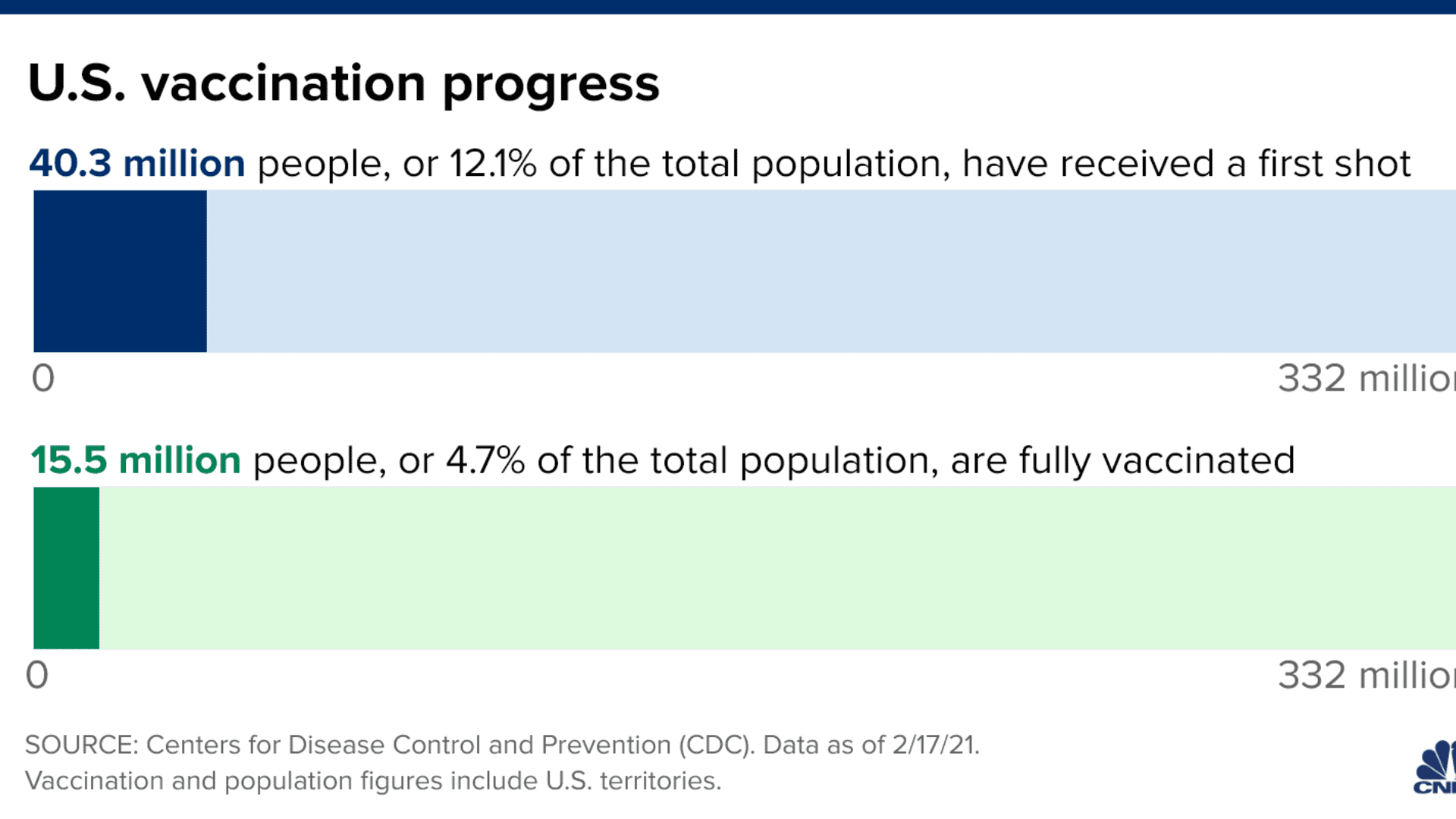
- As vaccine distribution slowly gains steam, a return to the office could be next.
- Here are the options for employees who may not be ready.
As vaccine distribution slowly gains steam, employers are starting to plan a return to normal — and the office — just as many workers are settling in at home.
Vaccinated or not, more than half of employees said that, given the option, they would want to keep working from home even after the pandemic abates, according to a survey by the Pew Research Center.
"Far fewer people will want to return to the office five days a week," said Michael Schmidt, a labor and employment attorney at Cozen O'Connor in New York. "The million-dollar question is how many days fewer than five will be required?"
That could largely hinge on the nature of the job, Schmidt said, such as whether employees interact with clients on a regular basis or collaborate on a team rather than work independently.
More from Personal Finance:
When will you be able to get vaccinated at work?
A return to the office for workers may be coming
Pandemic pushes millions from the labor force
Money Report
Already, there is a lot of discussion about who will be required to return to the office and when, said Carol Goodman, chair of the employment practice at New York-based law firm Herrick, Feinstein.
"I'm hearing it from both sides," she said. But, "until vaccines are available to everybody, it's very hard to require people to come back."

Employers, however, are not hinging their return-to-work plans on vaccinations, according to a separate report by Littler Mendelson, an employment law firm.
Most are extending remote work at least into the summer or allowing employees to work on-site on a voluntary basis, for now. And the majority plan to keep Covid-19-related safety precautions in place even after vaccines are readily available.
"Especially in the transition period — when some workers are vaccinated, and others are not — organizations must remain hypervigilant in enforcing these policies as a matter of workplace safety, while being mindful of employee morale," said Devjani Mishra, a leader of Littler's Covid Task Force and Return-to-Work Team.
Experts say employers can require employees to get vaccinated but that's unlikely, unless they work in high-risk environments, such as nursing homes or meatpacking plants.
Most U.S. organizations said that they will encourage, rather than require, their employees to get vaccinated, according to research from the Society for Human Resource Management conducted in December. Only 3% said they will require it for at least some workers.
Equal Employment Opportunity laws allow companies to mandate the flu and other vaccines, but employees can opt out under certain circumstances. The same may be true for Covid-19 vaccines, based on early guidance.
Returning to the office could play out similarly, according to Schmidt. "The bottom line is unless an employee has a need for an accommodation that precludes them from returning to the office, an employer is within its rights to bring in employees."
"If someone says they just don't want to come back to the office, they can be terminated," added Goodman. "Employees need to be aware of the policies and understand the exceptions."
Whether employers will allow employees to continue working from home is still very much up in the air. Many companies have said they will be more flexible, according to a report from The Conference Board.
In the meantime, Schmidt advises workers to start to lay the groundwork now for the type of schedule they would like to see down the road.
"Just like employers are starting to plan what they are going to do, employees should be engaging their supervisors and HR departments in their plans, as well," he said.






